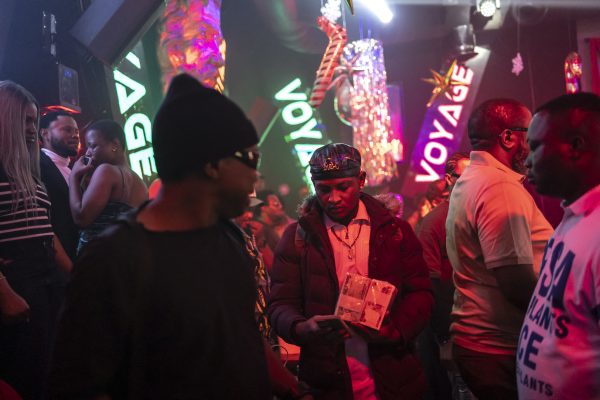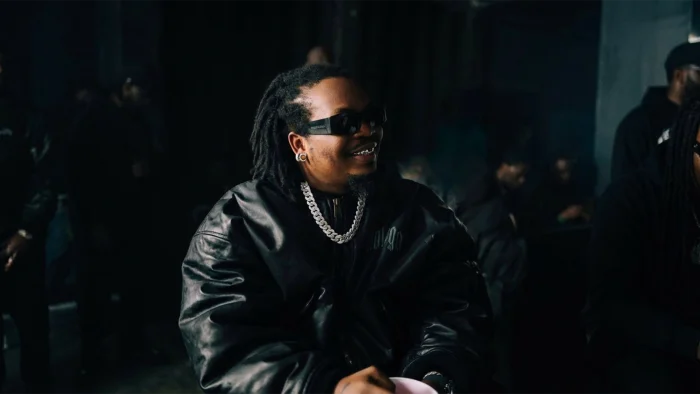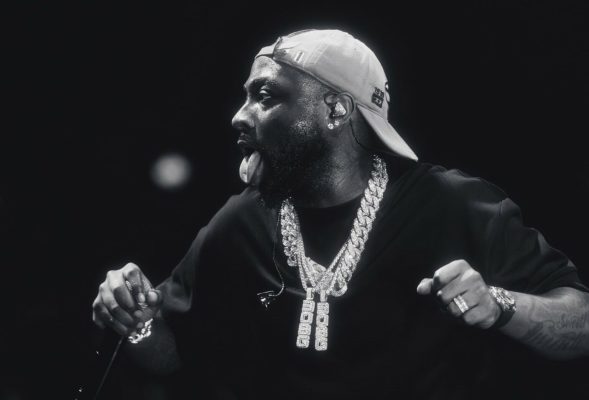
Contrary to accepted belief, Nigerian hip hop never died or would only come alive when the top artists – if fame and stature were the main meter of measurement – bothered to spit bars.
Traditionalist hip hop continues to be a feature in the genre, which is also alive to the newer waves of trap and grime, more vibrantly in the mid or lower stratum referred to as the “alternative movement.”
This loosely-knit group of young Nigerians eschew the flash and perceived vacuity of afropop, in favour of the introspection and vulnerability of emo, a subset which producer and artist Remy Baggins fits into in his beat-making, if not in his own solo material.
[ad]
For his fifth solo release “C.O.L.D,” Ice Prince has siphoned from this (still) new wellspring of trap-emo in a way that has not re-energised one of Nigeria’s most successful rappers, so much as re-focused him on exploring fresher soundscapes, rather than the baggy, big status album that was “Jos To The World” (2016), which came after “Fire of Zamani” (2013) and debut “Everybody Loves Ice Prince” (2011).
All three albums stretched to 17-19 songs each, a prodigious length that too frequently makes for lethargy.
Prince’s 2015 EP “Trash Can” is made up of six songs and is still an enjoyable listen three years on for its quality as well as brevity.
The focus it must have inspired is replicated on the eight songs that make up “C.O.L.D”.
On “Hit Me Up,” an effective hook from Straffitti may present itself as a brag-swag about self-confidence but its real interest is in the gusto in the refrain “hit me up, hit me up” over a viscous trap beat whose bass synth is quickened by a roving piano and prickly snares.
This puts Prince in a delightfully boastful mood with a dose of self-revelation that also doubles as a seed for revelation “mama told me get a mirror baby boy / you gon get the picture clearer baby boy”.
As if to insist on his name, Illkeys’ piano, patient and somber, defines the emotional palette of “So High” which celebrates the joys of marijuana professing to “smoke till my face turns black.”
Assigning the word “interlude” to what in effect is a standalone song (even if incomplete) reduces the status of “Die For Love” as so-called interludes are more often disposable or unformed song ideas.
A second rap or sung verse would do away with such limitations but does not on account of Prince’s well-judged hook and short but punchy verse about his affections and sexual prowess.
[ad]
The insecurities and hedonism of the romantic relationships of a touring artist is at play on “Tour 254” which is the area code for Texas in the US and also the country calling code for Kenya.
But escapism takes a turn when either parties catch feelings or develop expectations that are not requited.
Prince sets the scene emoting about the rosy beginnings before delivering a succinct and vividly drawn picture
“Last time I touched down in your city I was f****d up /and I don’t remember half the things we did on that tour bus / Now you make this shit so awkward /cos you keep going back to my last words / but those promises if you fast forward / are just memories in my passport”
Trap snares add zest to what was once a resolutely bedroom R&B beat, the work of Remy Baggins whose soundscape would seem to bring out delicate shades of emotions from Prince and the mature resolution of a doomed relationship when he concludes “maybe we were just supposed to kick it one time never ask for you.”
The dance-funk of Remy Baggins’s production on “Space-Funk” ably combines its hallmarks of synth keyboard bass lines, electric bass and thumping percussion with commanding drum claps, all of which provide ample grounds for Prince to rap “straight” and fluently about the delights of a high, whether from sex or substance and loftier than a flown kite seeing that he’s “trying to put you on a rocket tonight”.
Jethro Faded gives a stunning vocal performance on “Shutdown” imbuing his voice with languor that compliments the heavy bass synth on the chorus but is also malleable enough to mimic (and take the place of) an electric guitar, that may indeed carry Jethro Faded voice but is indistinguishable from it.
Added to the jangle and bounce of Remy Baggins’ beat, Ice Prince ably supplies chest-beating bars about prowess and stature in ever convincing fashion.
The tough talking rapper who would only risk melancholy and regret is fully submissive to his feelings on “Las Gidi No 1 Chic” which is about a one-time lover who he “used to love you / when I used to understand you” – a simple enough confession that conveys the emotional catharsis of the entire project in its show of vulnerability that would suggest coming to face with rejection also carried in another admission – “if you look into my eyes / you go see say i dey miss you die”.
Without much in the way of personal revelations from Prince, “C.O.L.D” is a potent self-portrait in the continuing evolution of the artist and his craft.
[ad unit=2]








